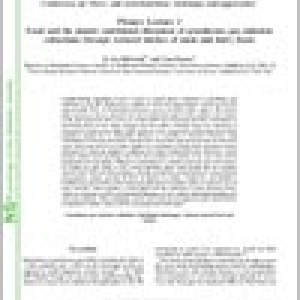
Plenary Lecture by Joe Millward and Tara Garnett, given at the Conference on ‘Over- and undernutrition: challenges and approaches’ published in Proceedings of the Nutrition Society.
Abstract
Legally-binding legislation is now in place to ensure major reductions in greenhouse gas emissions in the UK. Reductions in intakes of meat and dairy products, which account for approximately 40% of food-related emissions, are an inevitable policy option. The present paper assesses, as far as is possible, the risk to nutritional status of such a policy in the context of the part played by these foods in overall health and well-being and their contribution to nutritional status for the major nutrients that they supply. Although meat may contribute to saturated fat intakes and a higher BMI, moderate meat consumption within generally-healthy population groups has no measurable influence on morbidity or mortality. However, high consumption of red and processed meat has been associated with increased risk of colo-rectal cancer and recent advice is to reduce intakes to a maximum of 70 g/d. Such reductions in meat and haem-Fe intake are unlikely to influence Fe status in functional terms. However, overall protein intakes would probably fall, with the potential for intakes to be less than current requirements for the elderly. Whether it is detrimental to health is uncertain and controversial. Zn intakes are also likely to fall, raising questions about child growth that are currently unanswerable. Milk and dairy products, currently specifically recommended for young children and pregnant women, provide 30–40% of dietary Ca, iodine, vitamin B12 and riboflavin. Population groups with low milk intakes generally show low intakes and poor status for each of these nutrients. Taken together it would appear that the reductions in meat and dairy foods, which are necessary to limit environmental damage, do pose serious nutritional challenges for some key nutrients. These challenges can be met, however, by improved public health advice on alternative dietary sources and by increasing food fortification.
To read the article see the file attached below.



Post a new comment »